Mary Wollstonecraft, an English writer, philosopher, and a passionate advocate of educational and social equality of women. She is well known for two major works, ‘A Vindication of the Rights of Men’, written in 1790 in respond to Edmund Burke’s ‘Reflections on the Revolution in France’ and ‘ A Vindication of the Rights of Women’ in 1792 which was written after Wollstonecraft read Charles Maurice de Talleyrand Périgord’s 1791 report to French Revolution National Assembly, which stated that women should only receive domestic education.
‘A Vindication to the Rights of Women’, was an answer to those educational and political theorists who believed that women did not require any education rather they were to excel in the fields of household activities.
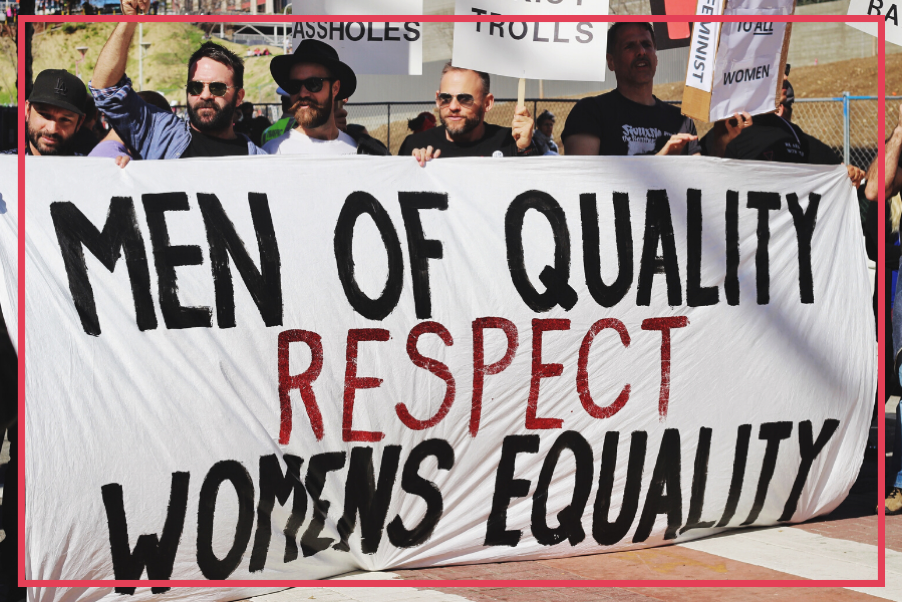
Wollstonecraft believed that women could educate the whole nation by just educating their children. She asked the men to treat their wives as their ‘companion’ rather than their assistants who would fulfill their desires and was supposed to complete the household activities.
She insisted on viewing women to be a part of the society in all means rather than considering them as ornaments to the society or property to be traded in marriage. She maintains the view of stating that women should also be considered as human beings who deserve the same fundamental rights in society as that of men.
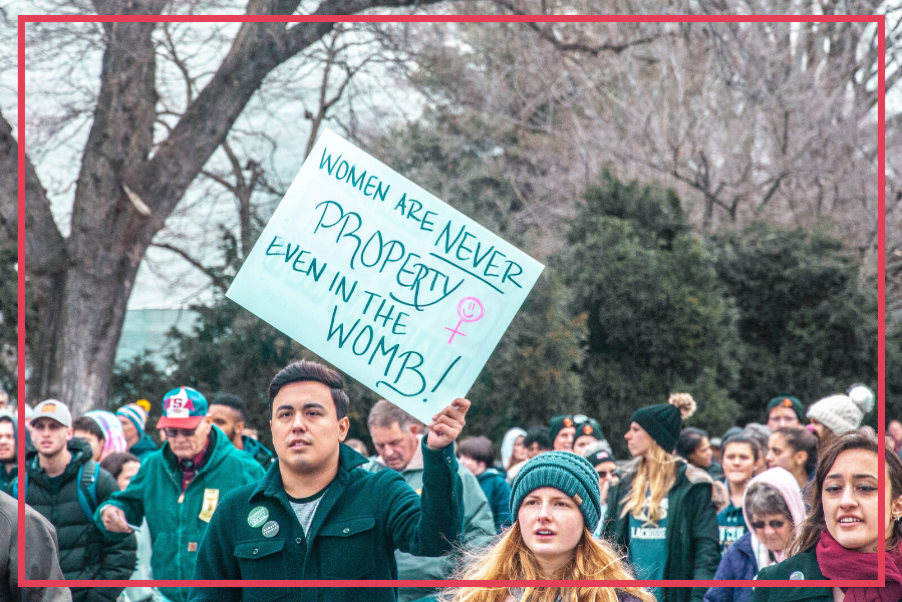
Before 1792, there had been works that demanded and argued for the rights of women’s education often because of the morals and the betterment of the women’s role in their male partner’s life. In contrast, Wollstonecraft is here introduction criticizes women’s education.
She stated women to weak and wretched as they were not in a healthy state of mind because of the poor education system in which men consider females as women first then human creatures. They become ‘alluring mistress’ first then ‘affectionate wives and rational mothers.’ She also said, ‘the civilized women of this present century, with a few exceptions, are only anxious to inspire love, when they ought to cherish a nobler ambition, and by their abilities and virtues exact respect.’
She goes on to say, rebelliously, that ‘I shall first consider women in the grand light of human creatures, who, in common with men, are placed on this earth to unfold their faculties …’. Wollstonecraft’s arguments were often far ahead of our time.
For example, in Chapter 12 ‘On National Education’, she recommends the establishment of a national education system, to operate mixed-sex schools. She also argues that it is essential for women’s dignity that they are given the right and the ability to earn their living and support themselves.
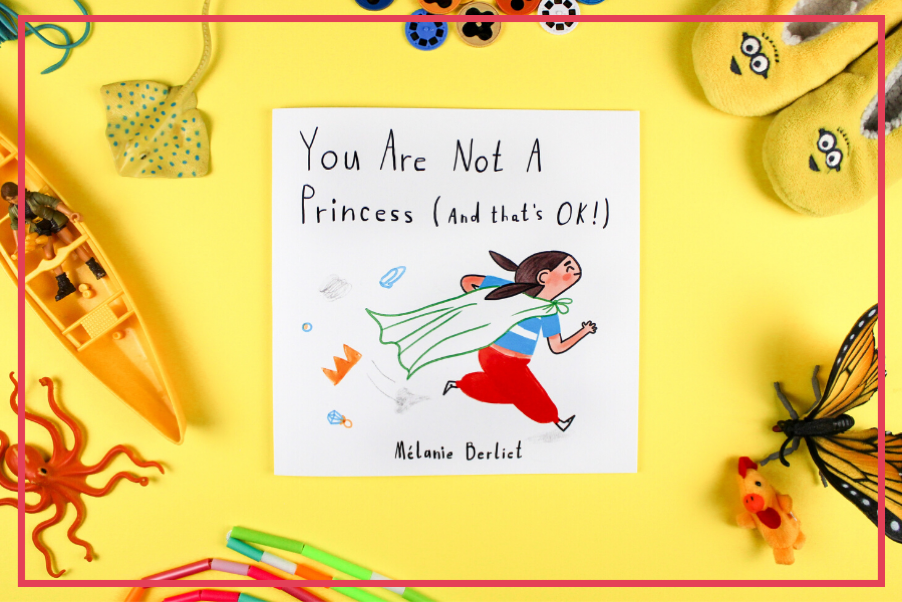
The chapters of the book cover a wide range of topics and the many deviations in the text in support of William Godwin’s report. Wollstonecraft wrote the book quickly over only six weeks. Wollstonecraft’s tone of writing conveys both her sense of humor but also her anger at the enfeebled situation that the majority of women were forced into:
“My own sex, I hope, will excuse me, if I treat them like rational creatures, instead of flattering their fascinating graces, and viewing them as if they were in a state of perpetual childhood, unable to stand alone.”

A Vindication of the Rights of Woman covered a wide range of topics relating to the miserable and weak conditions of women in the whole patriarchy society. Not only did she argue upon the equality of women with men in the field of education but also the field of law as well as their right to parliamentary representation.
Her writing was proven to be on board later in the nineteenth and twentieth century as Jane Roland Martin had commented that reformers looked to the system of coeducational schooling as a ‘fact of life’ for many millions of people. But the only problem that arose was that ‘this great historical development turned out to be a carrier of old inequities and the creator of new problems for women’ (2001: 71-2).
Not only is it necessary to ensure that coeducation is ‘girl and women-friendly’ it is also necessary to design education for both sexes that ‘incorporates the virtues of rationality and self-governance that Rousseau attributed to men and also the virtue of patience and gentleness, zeal and affection, tenderness and care that he attributed to women’ (op. cit.).
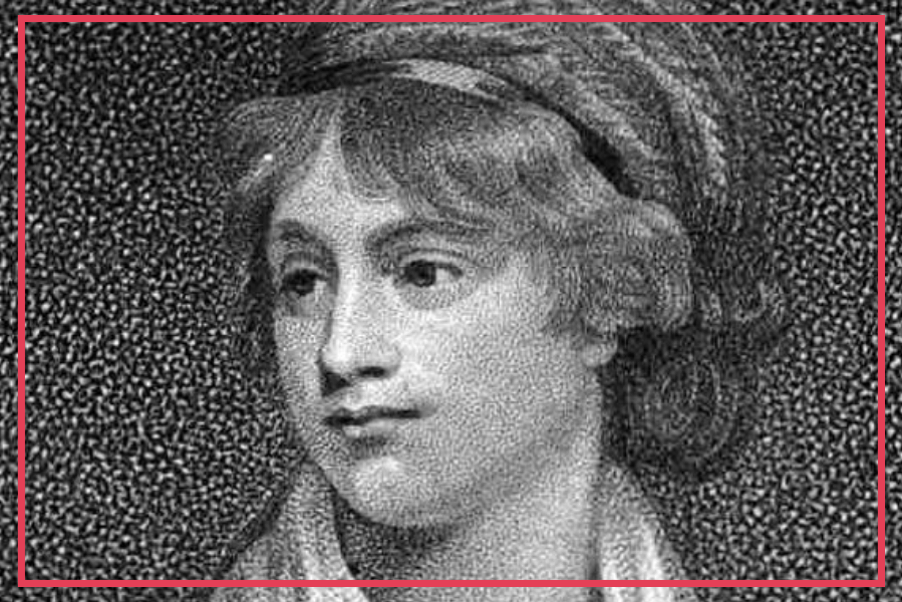
Mary Wollstonecraft was a pioneer for women. She led the way for feminists and her book is a classic that still inspires many today.
“Men and women must be educated, in a great degree, by the opinions and manners of the society they live in.”
– Mary Wollstonecraft.
Socially Desi is a blogging website which focuses on Personal Development, Mental Health, Minimalism, Business & Entrepreneurship, Life Hacks and Relationships
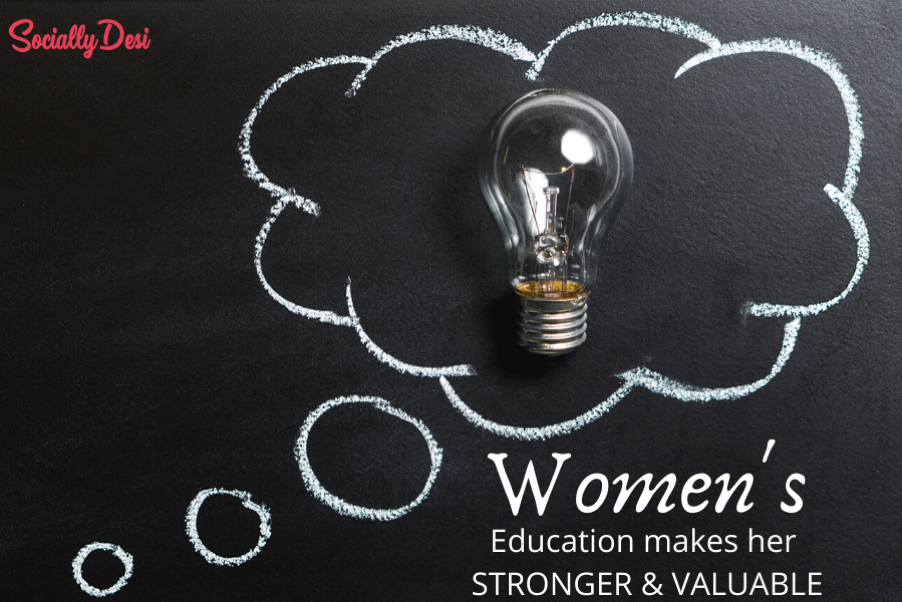
Great collection of words
It’s really good
Keep up the good work 🙂
Thank you so much
Who is the author of the article? Please connect
Hi, please reach out to us at [email protected]
Beautifully articulated ❤️
A strong and powerful message to the society women are always equal to men… Keep up the good work
Thank you for your support
Nice one dear… I wish that this little blog can bring some change to our society…just keep it up, and good luck for your next one(will wait for the next one)
Great content ❤❤
THIS IS SO SO GOOD.
Really bold and strong.
Worth a read!
Keep writing. (:
will surely do
A powerful and beautifully written article.
A powerful and beautifully written article enlightening the necessity of women education.
Glad that you can relate
A powerful and beautifully written article enlightening the necessity of women education.
Good Article
You have worked so hard to create a good content .
It is so helpful💖😚
Thank you so much